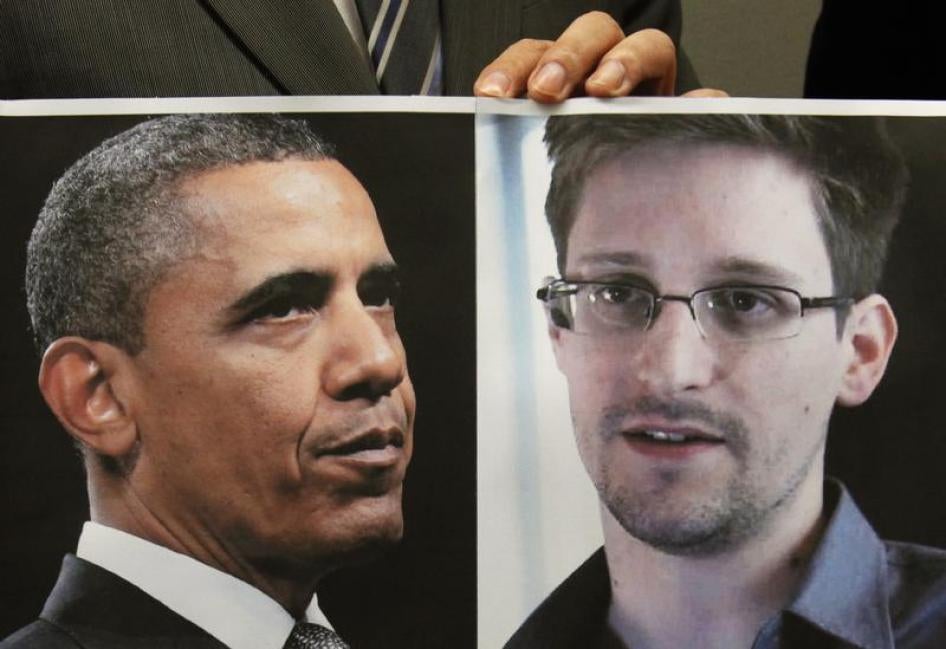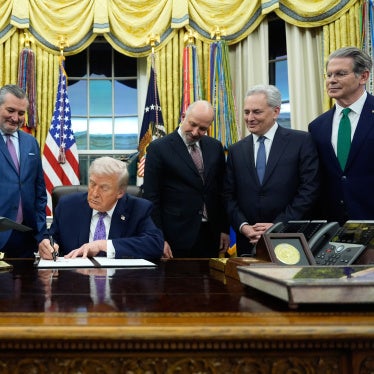Update: On Friday, Human Rights Watch sent a letter to President Obama urging that he commute the sentence of Chelsea Manning. On January 17, President Obama ordered Manning be freed, having served nearly 7 years of her sentence, on May 17, 2017, rather than in 2045.
“President Obama should be lauded for his decision to commute what was by far the longest sentence in US history for a leak of government information—a punishment that was disproportionate and, as we now know, placed a transgender woman in a position of vulnerability in a men’s prison,” said Sarah St.Vincent, national security and surveillance researcher in the US Program. “We also hope President Obama will take the logical next step by pardoning NSA whistleblower Edward Snowden, whose release of information the president himself recognized has led to an important public debate.”
Chelsea Manning, sentenced to 35 years for leaking US diplomatic cables to Wikileaks, is reportedly on President Barack Obama’s shortlist for potential commutation of sentence. That’s hopeful news, given that she is serving a grossly disproportionate prison term in comparison with any other leaker of national security information in the US or indeed, any democratic ally of the US. It’s also appropriate since she was unable under the law to argue that any of her leaks were justified in the public interest, nor did the government have to show that a specific harm resulted from her leaks.
This welcome possibility throws into high relief the urgency of Obama pardoning Edward Snowden as part of reversing his administration’s lamentable record on prosecution of leaks. Snowden’s disclosures to respected journalists were deliberately chosen to expose an illegal surveillance regime that had metastasized without strong executive or legislative oversight. He required the journalists to use their judgment to publish only what was in the public interest, avoid harm to innocent people, and consider the government’s views on whether their stories posed unacceptable harm to national security. The resulting stories spurred significant reforms and two independent review panels in the US, as well as important developments at the United Nations and globally, where the right to privacy was recognized as endangered in this digital age.
Snowden put his name to his deed. He voiced complaints to superiors, but retaliation against other security whistleblowers like Thomas Drake made it clear there was no alternate safe channel. Snowden wound up in Russia, not by choice, but because his onward passage was made impossible when the US cancelled his passport, recent conspiracy theories to the contrary. If he returns, he will face prosecution under the same unfair law Manning did, unable to defend his acts by arguing they were in the public interest, as international law requires.
No possible interest is served by maintaining his exile in Russia. Certainly the public’s interest in protecting future whistleblowers is not.
The leaders of top human rights organizations, including Human Rights Watch, have written to President Obama, urging him to act. More than a million people have signed the petition for pardon we delivered to the White House. There’s still time—for you to sign it, and for President Obama to send a strong message that we must protect those who risk their freedom to protect human rights.








